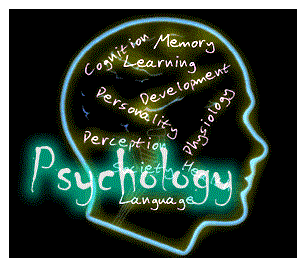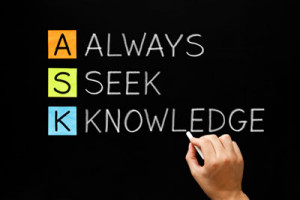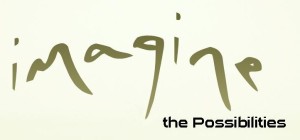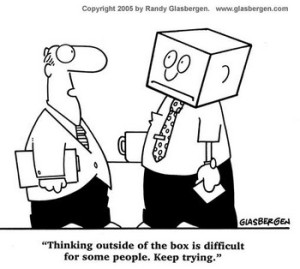Sep 30 2015
DAY 18 – 30 Days To The New Economy
Your Role In History As An Entrepreneur
Side note: In editing Peggy’s book chapters for blog adaptation, I’ve found her style to be surprisingly (for an economist leadership expert, itself, to me, an oxymoron) engaging. Today’s topic, however, encompasses the object of my business teething and career so I feel compelled to spotlight a bit of the professionalism of marketing. Factoids (such as the components of marketing and the distinction between creating and stimulating desire, for example) are seldom addressed or positive-ized in economic treatises or website meanderings. Thank you. Enjoy the journey! Hal
Imagine Marketing
One of the great advances of the 20th Century was the development of the field of marketing. As industrialists were able to mass produce clothing, cars, homes and candy bars, they sought a method or methods to promote those things to a public who may not have known that they needed or wanted them.
Psychology and sociology combined with imperatives to maximize business profitability and the science of markets was born. Where markets existed, they were maximized. Where markets did not exist, they were created. Yet marketing is not a creator of society wants and needs. It is simply a reflection of society–a mirror of what already exists.
You know you need a home but you probably didn’t know you need or want a certain type or brand of kitchen appliance or configuration of closets until marketers educated you about the differences in price, performance, design, function, impressions, and longevity.
You know you need a car to get to work, but marketers let you know which models and styles were available so you could choose those that would best serve your practical functional and budget needs as well as those that best meet the conscious or unconscious emotional wants you most closely identify with (e.g., power, status, sex appeal, safety/service focus, family/parental focus, environmental/energy focus, etc.).
Marketing attaches meaning to the products and services we consume. Think of marketing as a big umbrella over a broad spectrum of marketing functions, which include sales, advertising, branding, pricing, packaging, promotion, merchandising, public relations (news releases, events, media communications), and more. Marketing also raises life necessities to luxury levels for a price.
Marketing does not create desire because humans already possess desire. Marketers stimulate desires that already exist. Marketing sometimes prompts us to purchase or consider purchasing products and services we didn’t know we needed or wanted until subliminal interests are created for them, and our desires are stimulated.
By the mid-20th Century, mass production meant that businesses could create enough products to satisfy the desires of mass markets. Mass communication through a mix of limited channels (using television, radio, magazines, direct mail, and outdoor and transit billboards) standardized desire for mass produced products.
The Internet changed the whole world of marketing. The Internet is a personal communication device. What comes through my computer is as different as what comes through yours as we are. No two computers deliver the same content because the content is a reflection of the fingerprint of the user. One user accesses religious content, another pornography, and yet a third spends most of her or his time surfing the net for the best price on handbags, shoes, or on hunting and fishing equipment and gear.
How do you market to EACH individual on his or her personal communication device?
Like finance, we’re rewriting the discipline of marketing while we’re practicing business in the New Economy.
As an Internet entrepreneur, you find your markets by searching for people who are interested in buying what you are selling. You contact them through social media using list serves, groups, email blasts and subscriptions, blogs and connectivity/referral platforms . . . following where each thread leads. When you pull on a thread, it will lead to a tapestry of related interest groups. As a business person, the end of each thread is a potential customer.
The hardest job of Internet Joe is to refine his product or service to meet the needs of a specifically defined target market within the potential of a global customer base. Expect that it could take time to refine your approach. You will go through several iterations before you hit on exactly what specific flavor of what you offer appeals to which specific individuals.
In the New Economy, your customers are in New Zealand and Newfoundland. Get to your keyboard and go find them.
# # #
C’mon back tomorrow 10/2 for Day 19 —
It’s all about SALES, SALES, SALES, and more SALES.
# # #
S P E C I A L A N N O U N C E M E N T
Sign up NOW for NOVEMBER 29th (Sunday Night after Thanksgiving)
LIMITED SEATING COACHING WEBINAR:
“ENTREPRENEURS ARE AGENTS OF CHANGE . . . Accelerating Your Business”
Get fresh, informed, proven insights geared specifically to your business market, your biggest problems, your biggest opportunities.
With Hal and Peggy’s wealth of business coaching experience, you’ll learn how YOU match up with what successful entrepreneurs are thinking and doing RIGHT NOW. Get ideas you never imagined. Gain the traction you need within 2 hours — not days or weeks or months. Simply call 931.854.0474 Central Time: 11AM to 4PM Monday-Friday for details, to explain your business pursuit focus and to reserve your seat! $99 total for 2 hours. Satisfaction Guaranteed.
———-
For more information on Peggy Salvatore’s book: 30 Days to the New Economy [© Peggy Salvatore 2015. All Rights Reserved.] click on ENTREPRENEUR NEWS or visit ow.ly/RysnP for the E-book
# # #
Hal@Businessworks.US Peggy@Businessworks.US
Open Minds Open Doors
Thanks for your visit and make today a GREAT day for someone!






















